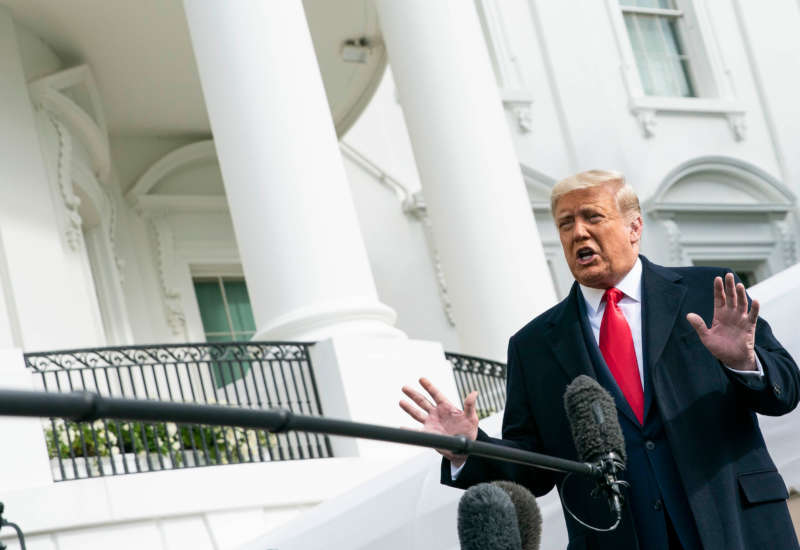President Joe Biden is rejecting executive privilege claims made by former President Donald Trump, allowing the House select committee investigating the January 6 Capitol attack to access White House visitor logs from Trump’s tenure.
The committee made the request last summer, along with a number of other requests for documents. After Biden waived executive privilege claims on hundreds of pages of documents from the Trump White House – and following several months of litigation from Trump trying to block their transfer – some of those requests have been resolved and documents have been delivered to January 6 investigators.
Visitor logs, however, including who was visiting the White House to meet with Trump in the weeks before and after the Capitol attack, have not yet been given to the January 6 committee.
In a letter to the National Archives, White House counsel Dana Remus requested that the agency deliver the visitor logs to the committee within the next 15 days, citing the “urgency” of their work. Remus also made clear that Biden would not object to the release of the logs and was waiving presidential executive privilege to make them available.
“Constitutional protections of executive privilege should not be used to shield, from Congress or the public, information that reflects a clear and apparent effort to subvert the Constitution itself,” Remus wrote in the letter.
NEW: @POTUS Biden rejects Donald Trump’s claims of executive privilege over White House visitor logs and the White House counsel’s office orders @USNatArchives to release them. Full letter: pic.twitter.com/Um4izfpWHd
— Ed O’Keefe (@edokeefe) February 16, 2022
White House visitor logs had generally been made public under policies established during the Obama administration. But in April 2017, Trump announced that he would be making the logs private, ostensibly for security purposes.
Remus’s letter appeared to reject that premise, stating that the materials sought by the January 6 commission wouldn’t jeopardize the institution of the presidency.
“The majority of the entries over which the former president has asserted executive privilege would be publicly released under current policy,” Remus wrote. “As practice under that policy demonstrates, preserving the confidentiality of this type of record generally is not necessary to protect long-term institutional interests of the Executive Branch.”
It’s unclear whether Trump will seek to block the National Archives from handing over his White House visitor logs to the January 6 committee. Trump has previously tried to block access to other White House documents through months of litigation.
In mid-January, the Supreme Court announced that it would refuse to hear an appeal from Trump’s lawyers over the matter, leaving in place a lower appellate court’s ruling that said the documents could be shared with the committee.
Even if the former president is unsuccessful in blocking the White House logs from being shared, Trump may be able to use the legal process to delay their release until the January 6 committee is dissolved, if Republicans can win control of the House in this year’s midterm elections.


